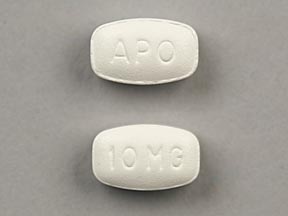
Allergy (cetirizine) Coupons & Savings Card – Discount Prices from $6.65
Brand for: Cetirizine
Cetirizine is an antihistamine used to relieve allergy symptoms such as watery eyes, runny nose, itching eyes/nose, sneezing, hives, and itching. It works by blocking a certain natural substance (histamine) that your body makes during an allergic reaction. Cetirizine does not prevent hives or prevent/treat a serious allergic reaction (such as anaphylaxis). If your doctor has prescribed epinephrine to treat allergic reactions, always carry your epinephrine injector with you. Do not use cetirizine in place of your epinephrine.
Our Allergy (cetirizine) coupons are free to use. You can print the coupon, email it to yourself, or receive the Allergy (cetirizine) coupon via text message. To get your free discount, show the pharmacist your Allergy (cetirizine) savings card which has the discounted coupon price. Use our filters below to edit the prescription box to match your needs. The Allergy (cetirizine) prices will update based on your prescription needs. Above our Allergy (cetirizine) coupons, you can change the location to see pharmacy prices in other areas. Our prescription discount card will update online with the specific pharmacy costs associated with your edits. Be sure to text, email, or print the Allergy (cetirizine) savings card code that you need after editing the prescription box and location field. Show the discount card to your pharmacist before paying.
My prescription
Edit
10MG, Cetirizine (30 Tablets)
Select pharmacy

Walgreens
$6.65
COUPON PRICE
Albertsons
$8.87
COUPON PRICEAllergy (cetirizine) savings card
Show this card to your pharmacist
Walgreens
$6.65
BIN
ID
PCN
GRP
011867
LH0616EE06
HT
LABH001
Powered by
Cetirizine is an antihistamine used to relieve allergy symptoms such as watery eyes, runny nose, itching eyes/nose, sneezing, hives, and itching. It works by blocking a certain natural substance (histamine) that your body makes during an allergic reaction. Cetirizine does not prevent hives or prevent/treat a serious allergic reaction (such as anaphylaxis). If your doctor has prescribed epinephrine to treat allergic reactions, always carry your epinephrine injector with you. Do not use cetirizine in place of your epinephrine.
Our Allergy (cetirizine) coupons are free to use. You can print the coupon, email it to yourself, or receive the Allergy (cetirizine) coupon via text message. To get your free discount, show the pharmacist your Allergy (cetirizine) savings card which has the discounted coupon price. Use our filters below to edit the prescription box to match your needs. The Allergy (cetirizine) prices will update based on your prescription needs. Above our Allergy (cetirizine) coupons, you can change the location to see pharmacy prices in other areas. Our prescription discount card will update online with the specific pharmacy costs associated with your edits. Be sure to text, email, or print the Allergy (cetirizine) savings card code that you need after editing the prescription box and location field. Show the discount card to your pharmacist before paying.
Allergy (cetirizine) FAQs
Using the SaveHealth discount card, what is the price of Allergy (cetirizine) without insurance?
Using the SaveHealth discount card, the price of Allergy (cetirizine) without insurance is $6.65.
What is the price of Allergy (cetirizine) at Walgreens?
The price of Allergy (cetirizine) at Walgreens is $6.65.
